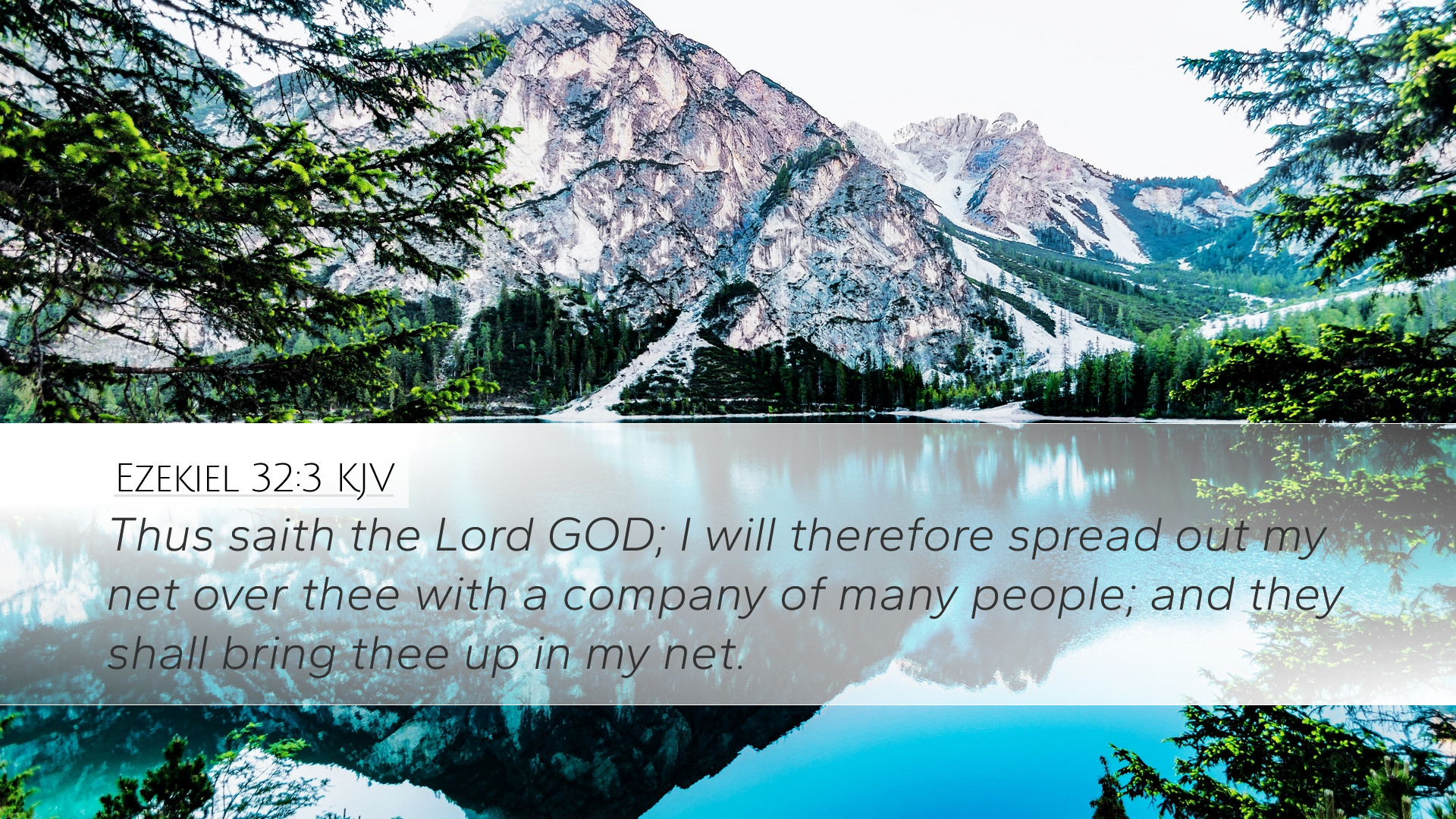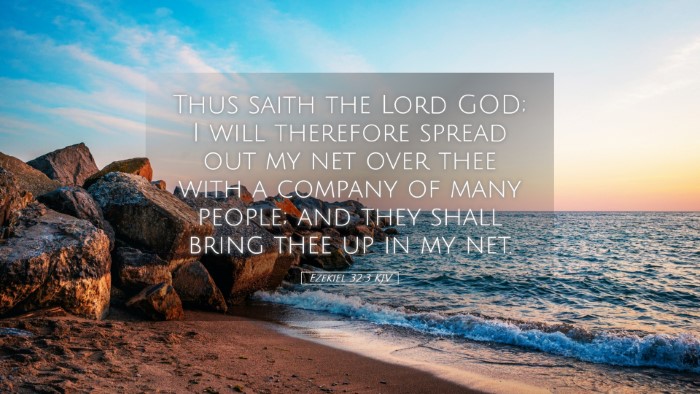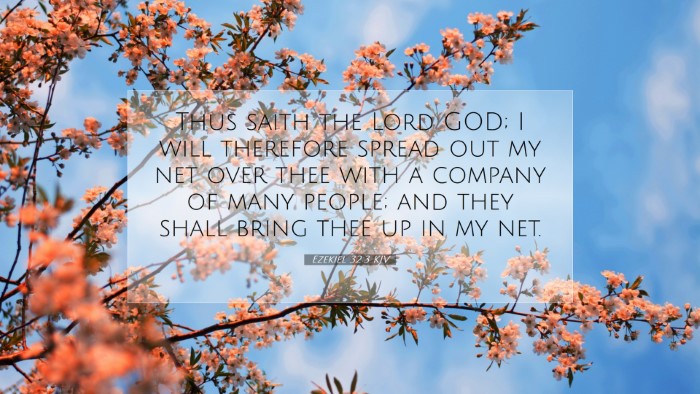Ezekiel 32:3 - A Comprehensive Commentary
Verse Context: Ezekiel 32:3 states, "Thus says the Lord God: I will throw my net over you with a host of many peoples; and they will haul you up in my dragnet." This passage serves as a metaphorical pronouncement that underscores the impending judgment upon Pharaoh and Egypt, who are personified as a great beast in previous verses.
Introduction
The prophetic oracles of Ezekiel present a complex tapestry of judgments and revelations concerning nations, particularly Israel and her neighbors. This specific verse forms part of a larger narrative aimed at delivering divine judgment against the Egyptian Pharaoh, a symbol of worldly power and arrogance against God. The insights gathered from notable public domain commentaries, such as those by Matthew Henry, Albert Barnes, and Adam Clarke, provide a significant theological framework for understanding this verse's implications and applications.
Exegesis of Ezekiel 32:3
Historical Context: To fully grasp Ezekiel's message, one must consider the historical backdrop of the Babylonian exile. Egypt, once a refuge for God’s people, had become a point of pride and idolatry. Israel's reliance on Egypt is analogous to entrusting oneself to worldly powers rather than God.
- Matthew Henry’s Insights:
Matthew Henry emphasizes the metaphor of the “net” as a divine tool used to capture not just individuals but also nations. He posits that God’s judgment can come through various means, often employing powerful forces (like Babylon) to execute His will. Henry notes the implications of being caught in God’s net, reflecting on the inevitable nature of divine justice.
- Albert Barnes’ Commentary:
Barnes elaborates on the concept of the "dragnet," indicating that God’s judgments sweep across the nations indiscriminately, much like fishing nets capture many types of fish. He stresses that Pharaoh, embodying the pride of Egypt, symbolizes those who presume upon God’s mercy while rejecting His authority.
- Adam Clarke’s Analysis:
Clarke notes the picturesque nature of the imagery in this verse. The net signifies God’s direct action against the rebellious, and Clarke interprets that the "host of many peoples" indicates the collective nations that God will employ to bring Egypt to its knees. He highlights the idea of inevitability—no power can withstand God’s decree.
Theological Implications
This passage offers profound insights into the nature of God’s sovereignty and justice. The image of a dragnet suggests not only the capture of Egypt but also the broader theme of accountability before God.
- Divine Sovereignty:
The verse reinforces the belief that God is the ultimate authority over nations. In light of the commentary, it serves as a reminder that human powers, no matter how formidable, are ultimately subject to divine judgment.
- Human Pride and Judgment:
Pharaoh’s arrogance symbolizes a common human condition—a tendency to elevate oneself above God. Each commentary highlights the danger of pride and the consequences of defying divine order, iterating that God’s judgment is inescapable for those who walk in disobedience.
Pastoral Applications
For pastors and spiritual leaders, Ezekiel 32:3 delivers several vital applications:
- Encouragement of Humility:
Church leaders should encourage humility among their congregations, reminding them of the need to rely on God rather than worldly systems for security and sustenance.
- Warnings Against Idolatry:
This passage serves as a warning against placing trust in secular power structures or ideologies that stand in opposition to God’s command.
- Hope in Divine Justice:
Pastors can help congregants to find hope in the reality of divine justice—that God sees the oppression and injustice wrought by worldly powers and will act in His time.
Conclusion
Ezekiel 32:3 is a powerful reminder of God’s sovereign control over nations and the certainty of divine justice delivered against those who oppose Him. The insights of Henry, Barnes, and Clarke provide a layered understanding of this passage, encouraging contemporary believers to humbly acknowledge God’s authority and live in accordance with His will. As we reflect on these themes, may we grow in faith, hope, and the desire to follow God's commands amid worldly challenges.


